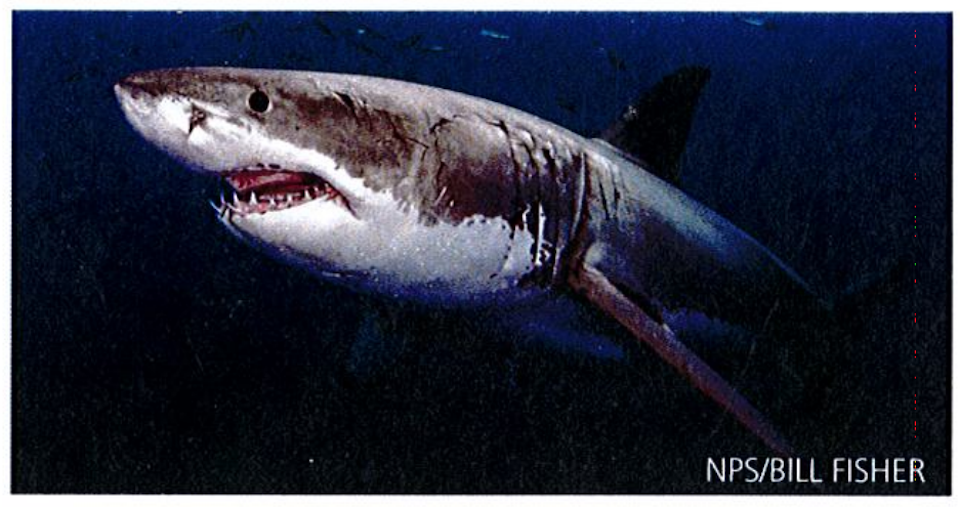
The only sure-fire way to avoid a shark attack is to stay out of the water/NPS, Bill Fisher
After all is said and done, there's no single approach that can be taken at Cape Cod National Seashore to 100 percent prevent a shark attack if you go in the water, according to consultants retained to study 27 suggested alternatives.
The Woods Hole Group, in a nearly 200-page paper, dissected the proposals. They ranged from using spotter planes and drones to physical shark barriers and reducing the population of gray seals that great white sharks feast on.
"The most important finding to emphasize from this preliminary assessment is there is no single alternative or suite of alternatives that can guarantee the safety of 100 percent of individuals who choose to enter the water," the consultants said.
Sharks attacks at the national seashore in Massachusetts have greatly raised the concern of National Park Service staff, seashore communities, and the visiting public. Twice during the summer of 2018 swimmers were attacked, leading to the death of one of them.
Great white sharks rule the waters off Cape Cod during summer and early fall each year. But in recent years they have been drawn closer to shore to feed on gray seals, whose numbers have skyrocketed off Massachusetts since being protected by federal law nearly 50 years ago.
Against that backdrop, the National Park Service has greatly increased its outreach and education messaging to inform beach goers, and frequently closes beaches temporarily to swimming during the summer when sharks are spotted.

The Woods Hole Group examined each of the proposals and scored them from "high" to "low" in terms of likely effectiveness.
"However, because many of these alternatives have not yet been tested or are not currently commercially available, specific documentation related to effectiveless, limitations, and costs were not always available," the consultants said.
Alternatives that scored "high" or "medium high" in terms of likely success included modifying human behavior and electromagnetic deterrents.
The consultants didn't recommend any one alternative, but said it would "be prudent to review the lessons learned from pilot studies and deployments of shark mitigation strategies elsewhere in the world. Dealing with shark-human interaction is a global issue, not one that is isolated to our region," they said.


 Support Essential Coverage of Essential Places
Support Essential Coverage of Essential Places







Comments
We're going to need a bigger boat!!
Pretty simple: leave the sharks alone; post clear warning signs to the effect that anyone entering the water does so at their own risk.
maybe each town should pay a person to fly a drone at certain beaches that keep a live eye on the coast of certai town beaches during daylight hour. Drones are fairly inexpensive and easy to use and it would also help gain scienti data. I really don't think it would be a big deal for towns in the summer to make a budget for such an affordable action the drone operations can be simply run and paid for like a lifeguard on duty. I know I would take the job watching and piloting a drone with the hopes of gaining more insight into the local white shark population and it would make anyone in the water comfortable knowing there are real-time eyes on the surrounding waters.
I agree with James Linnane. Leave the sharks alone and swim at your own risk.
Instead of looking towards tech, look at nature. Float replicas of killer whales and play recordings of their "speech". Killer whales rarely visit the Cape and their presence has been known to scatter Great Whites in other parts of the world.
I agree with both Mr. Linnane and Mr. Rufo. Very simple and logical.
.
Reduce the population of gray seals through ethical hunting. Hunting will bring more tourism ergo more tax revenue and more eyes on the shark population, also which would be a great resource for the communities and researchers alike.
Sharks are increasing every single year, and no doubt that's surely going to happen this year. In truro and wellfleet, beaches were closing every day, sometimes 2 times a day at the same beach. The sharks need more tagging and more monitoring and more drones and more alarms and buoys and whatever it takes. The state needs to renew Greg skomals contract again and spend some of that 20 million they have and stop wasting time. July is 6 months away .I was one beach away when that attack happened at newcomb beach. That was so remote and rare but to know there's a problem and neglect to do anything... is criminal in my mind. How much revenue does the state gain from Cape Cod? And where are all the locals who have banded together on a cape agenda? Dig in folks. My neighbor was 10 feet away from that young man. Come on Cape Cod.